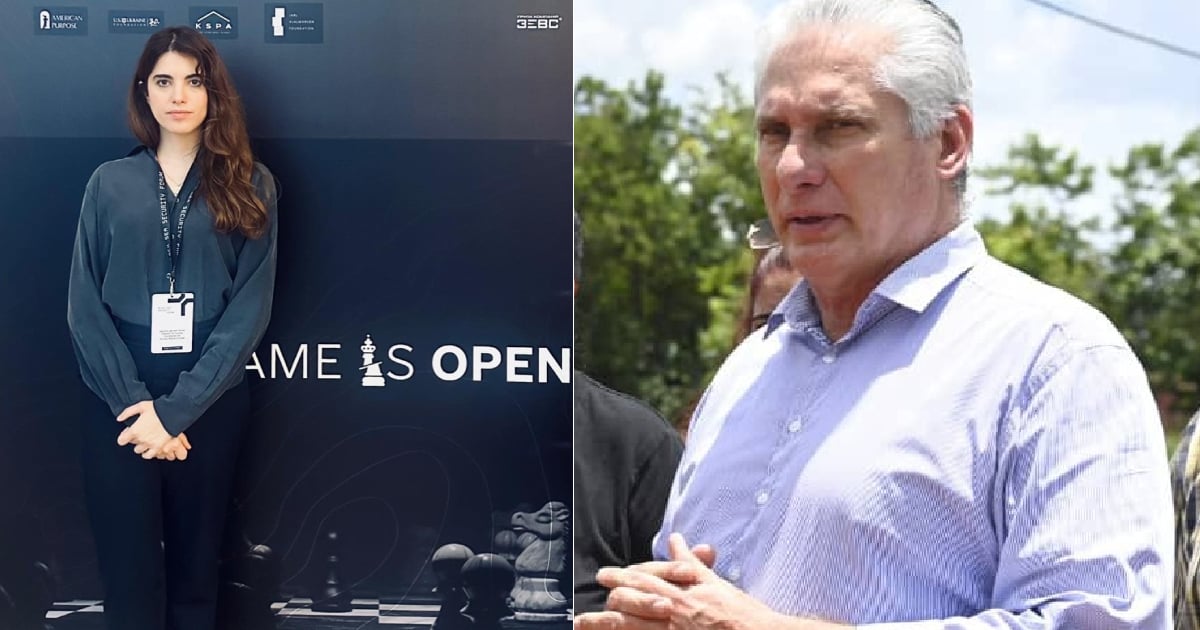Carolina Barrero Ferrer, an art historian and activist, has voiced her opinion on the power granted to the island's ruler by the proposed Citizenship Law, which the regime aims to pass next July.
"No fearful dictator will strip me of my nationality. Cuban identity does not belong to the corrupt usurpers of our freedom. Neither the dictator's decrees nor the laws they dictate without approval. When tyranny is a thing of the past, and everything is called by its name in history, I will still be a Cuban woman," Barrero wrote on her social media account on X.
The proposed Citizenship Law, published on the National Assembly of People's Power (ANPP) website last Monday, establishes several principles such as effective citizenship, equality of rights, and addresses the acquisition, renunciation, loss, and recovery of citizenship, as well as its registration.
Worrisome Provisions in the Citizenship Law
However, a concerning aspect is the powers it grants the head of the Republic to strip a Cuban of their citizenship. Chapter III "Deprivation of Cuban Citizenship," stipulates in Article 54 that Cubans cannot be deprived of their citizenship, except for legally established causes.
Following this, Article 55.1 outlines two causes: one is enlisting in any armed organization with the intent of threatening the territorial integrity of the Cuban state, its citizens, and other residents in the country. The second cause is "from abroad engaging in acts contrary to the high political, economic, and social interests of Cuba, as deemed by the corresponding citizenship authority," a broad statement that could encompass any activity the regime perceives as a threat, such as opposition or political activism.
Barrero has frequently stated that the forced exile imposed on her by the Havana government is a strategy used for decades by the regime to divide Cubans. "It only serves the power to separate us. The history of the struggle for civil and political rights is marked by exile; you cannot understand Cuban history without it," she asserted.
Barrero, one of the most visible activists in recent years on the island, was recently in Mykolaiv, a city facing Russia's war against Ukraine. From there, she denounced that the Cuban regime sent young soldiers to die in the invasion, as part of the corrupt geopolitics orchestrated between Havana and Moscow.
Key Questions About the Proposed Citizenship Law
In light of the proposed Citizenship Law, here are some critical questions and answers that delve deeper into its implications and potential impact on Cuban nationals.
What are the main concerns regarding the proposed Citizenship Law in Cuba?
The main concerns include the broad powers it gives the president to strip individuals of their citizenship, especially for activities deemed contrary to Cuba's political, economic, and social interests, which could be interpreted to target political dissent.
How does the proposed law affect Cubans living abroad?
The law could disproportionately affect Cubans living abroad by potentially stripping them of their citizenship for engaging in activities the regime considers against its high interests, thus targeting political activists and opposition members in exile.
What is the historical context of exile in Cuban political struggles?
Exile has been a consistent strategy used by the Cuban regime to weaken political opposition and civil rights movements. It has been a tool to isolate and disempower those who challenge the government's authority.
